Victoria’s dustbowl disaster zone
Families in the state’s northwest are at their wits’ end — not even weeds are growing on roadsides. This is Victoria’s dustbowl disaster.
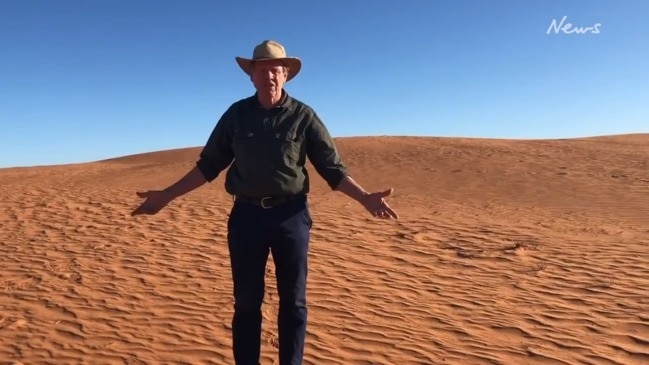
VIC News
Don't miss out on the headlines from VIC News. Followed categories will be added to My News.
There’s a “dirty summer” coming in the Tyack family’s parched-earth corner of the state.
Just two weeks after winter turned to spring, paddocks that should be flushed green with grass and knee-high crops of wheat, oats and barley resemble deserts.
Red dirt is whipped up with every breeze, piling against fences and making its way through farmhouse windows and doors left ajar.
Sand hills, patterned by the wind, are new additions to the farming landscape and for the first time in locals’ memories not even weeds are growing on roadsides. And the skies are quiet.
“It’s so dry even the bloody cockatoos have left,” one farmer tells the Sunday Herald Sun.
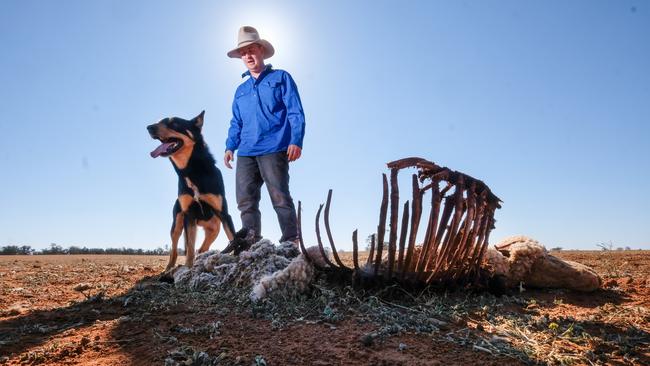
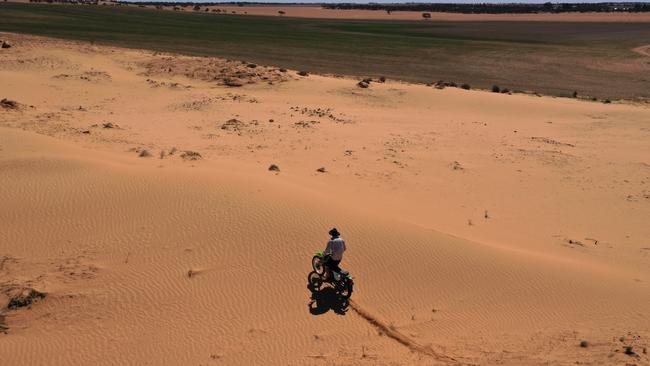
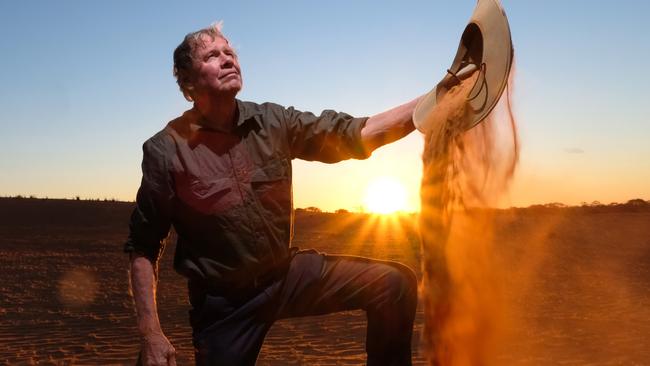
Why drought has ravaged the Millewa, the northwestern rural tip of Victoria, but spared the rest of the Mallee has the broadacre farmers of these parts shaking their heads.
There will be no harvest this year and livestock are being sold or moved to greener pastures elsewhere in the state, as there’s no food in the Millewa left for sheep or cows to eat.
All hope for the crops is lost, but a bit of rain over spring “might settle the dust, which is about all you can hope for now”, says Millewa farmer and father of three young boys, Cowan Tyack.
“Without it, it’ll be a dirty summer coming. More dust than anyone will be able to handle.”
The Tyacks’ sheep have been progressively sold off over recent weeks; about 700 went last week and more will go this week.
Cowan and his wife Erin, who have boys aged three, five and eight, say they will hopefully scrape through financially this year, but couldn’t survive another year of drought: “We’d be in strife.”
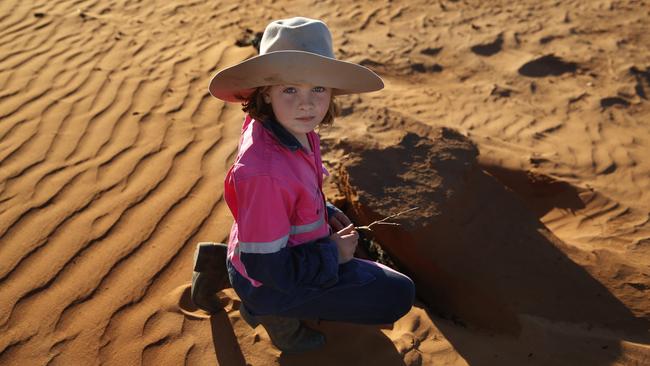

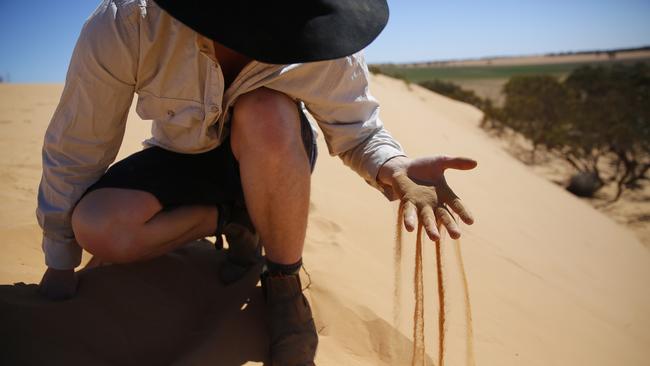
The story is the same across the Millewa district, which stretches 100km west from Mildura to near the South Australian border.
Just one decent rainfall in 18 months has seen once-thriving Mallee farms dry up, with up to 4000sq km of Millewa farming land now in drought.
“That’s the equivalent of Melton to Healesville,” says publican Trevor Biggs, from behind the bar of the Werrimull Hotel.
Branded Victoria’s “most outback pub”, it sits at the region’s heart, in every sense.
Stories from farmers gathered at the pub are the same: No rain. No crops. Sold or selling livestock.
Farmers in their 70s — some whose fathers, and fathers before them, farmed this land — say this drought is possibly the worst to hit the Millewa.
One says he has the rainfall records to prove it’s definitely the worst in more than a century.
Young folk once keen to take over the family farm are looking for jobs “in town”, and a number of farms in the district are for sale.

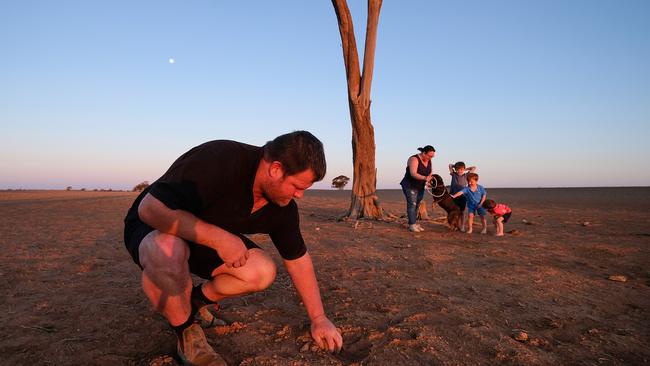
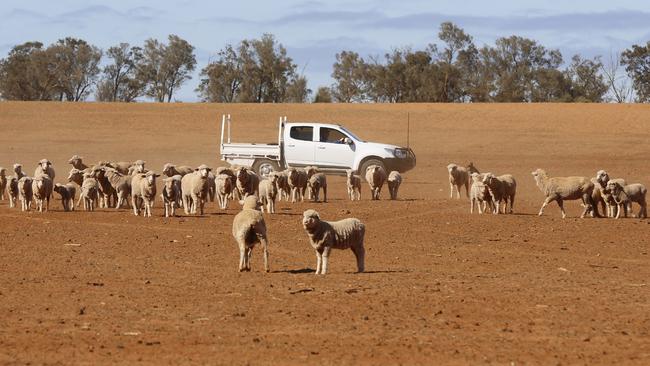
Eighteen-year-old Will Mangan says he’ll be looking for a carpentry apprenticeship when he finishes Year 12 because, in its current stricken state, his dad’s 1200ha Bambill property near Werrimull couldn’t support two workers.
“I’d like to take the farm over and keep it in the family name, but at the moment I can’t. I’ll have to find another job, wherever that might be, because it’s not financially viable if dad’s trying to live off the farm and so am I,” he explains.
Third-generation Millewa farmer Kieran ‘Rad’ Kelly says his property is in the worst shape he’s seen it in his 56 years farming, describing it as “like the Sahara desert”.
Rad’s son and daughter-in-law, Matthew and Renee Kelly, and four grandchildren, also live on the 4000ha farm.
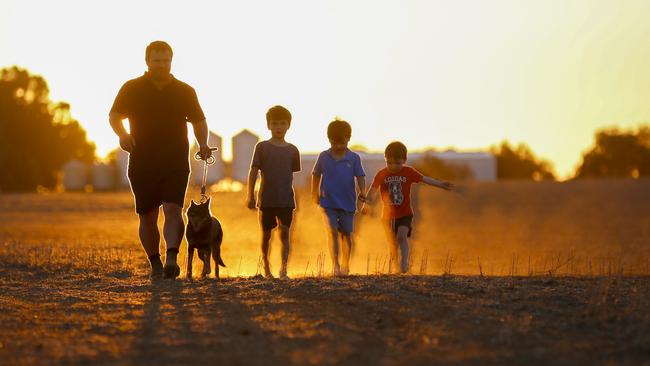
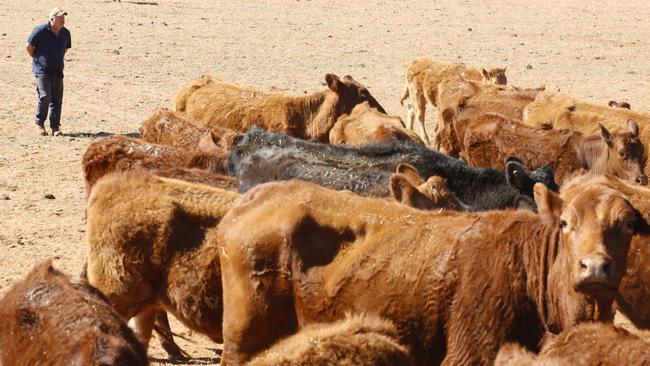
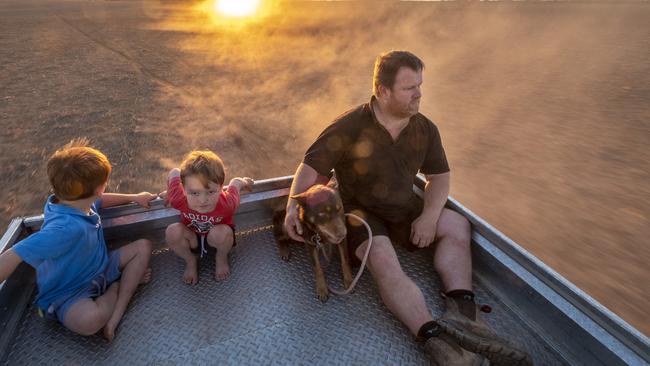
The kids once played and hid in thick crops, now they slide down sandhills.
“We know this year’s gone, but we live in hope for a better year next year,” Rad says. “It’ll be 18 months or so from now until anyone will get an income from the next crop, so that’s a long time without money coming in. And that’s assuming there is a decent crop next year.”
There’s wide agreement among the Millewa farmers that council rates relief would ease the pain, because there would be one less big bill to pay.
Waiving, or a significant reduction in, fees for use of pipeline water — used to fill stock troughs — feed-freight subsidies and concessional loans could also help, farmers say.
“When you’re farming, you accept that things aren’t always going to go your way, and that you’ll have good years and bad years, and you really don’t want to whinge too much about it all. But this year is more than that,” Rad says.
“This year is more than just your average bad year. This year is the worst it’s ever been.”
Third-generation Millewa farmer Glenn Henschke says his 4000 hectares are bone dry, with no grass for his cattle.
Times are so tough and finances so tight, he’s feeding straw and his cattle are rapidly losing condition.
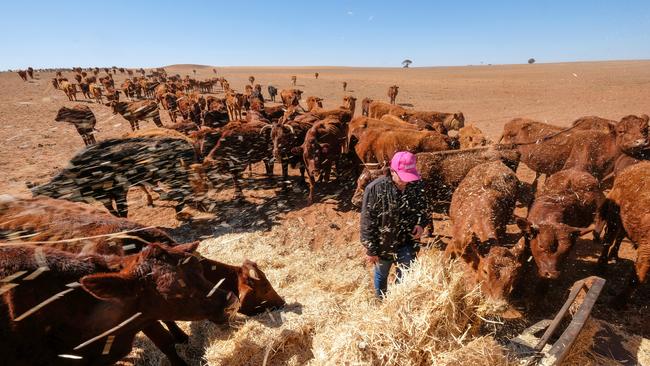
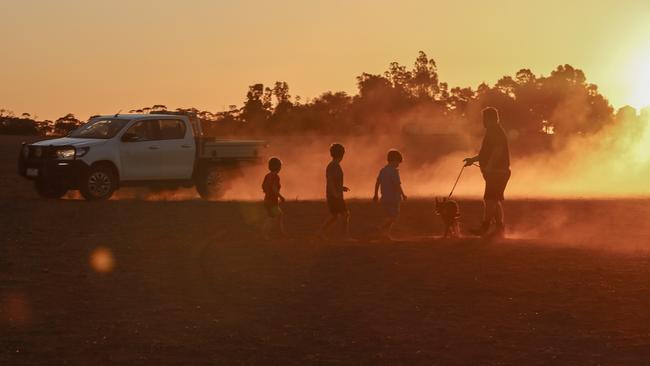
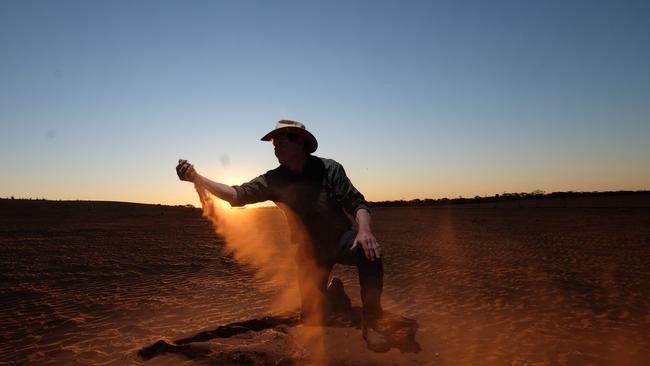
“We’re borrowing money now just to live,” he says. “It’s not a pretty picture.”
Allison Symes, who owns the neighbouring 3600ha property, is also battling.
“The farm is dry as dry and we’re trying to hold on to the last few cattle we’ve got,” she says. “But, truth be known, that’s probably not going to happen. We’ll probably have to sell the last of our breeders and basically we’ll have no income then.”
All her 18-year-old son Zac wanted to do was be a farmer, but that hope was fading with every day without rain.
MORE NEWS
UNIVERSITY OF MELBOURNE LECTURER DETAINED IN IRAN
HUNDREDS OF CLIMATE PROTESTERS SWARM CBD
WHY TEEN KILLER SHOULD NEVER HAVE BEEN FREE
“He’s out there working on the farm daylight to dusk, feeding out hay and fencing … but what future does he have? We say, ‘Go out and get another job mate’, but he says, ‘I don’t want to leave the farm’. We asked him what he wanted for his 18th birthday and all he wanted was a truckload of sheep.”
Leading Senior Constable Wayne Laird, the Millewa’s only police officer for nearly 20 years, may have the biggest beat in Victoria but he knows most of the people in his patch. Times might be hard but it takes a lot to take the wind out of the local farming families.
“They’re a tough lot,” he says.
“In the worst situations and tragedies, they support each other. They’re supporting each other now.”
